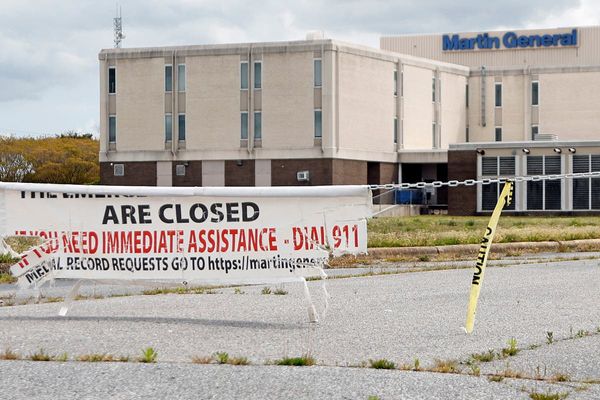
The Clapham chemical attack suspect, Abdul Ezedi, was granted asylum by a judge who accepted he was a Christian convert despite concerns about his honesty, court documents have revealed.
Previously confidential documents disclosed on Tuesday showed how Ezedi, who police believe attacked a mother and her daughters with a strong alkaline substance on 31 January, had been allowed to stay in the UK despite a sexual assault and exposure conviction.
The papers set out how the Afghan national successfully proved his religious conversion from Islam. They also showed those who supported him during the process were aware of his crimes, and that he had to be in effect escorted during church services as a result.
Ezedi’s body was pulled from the River Thames last month. His conversion to Christianity and the role that played in his asylum claim raised questions of the role faith leaders play in conversions and asylum applications.
In a November 2020, the ruling judge, WK O’Hanlon, sitting in the first-tier tribunal for immigration and asylum cases, said: “Having considered all of the evidence before me in the round, notwithstanding my concerns as to the honesty of the appellant in relation to certain aspects of his account, I find that the appellant had been consistent in his evidence with regard to his conversion to Christianity.”
The documents were released on Tuesday after the court granted submissions from the Daily Mail, the Daily Telegraph, the Times, the BBC, the Independent and the PA news agency, which argued disclosure was in the public interest.
Ezedi arrived in the UK in January 2016 but his initial asylum claim was refused by the Home Office, with an appeal later rejected by the courts the following year, according to the documents.
He was handed a suspended sentence at Newcastle crown court in January 2018 after pleading guilty to charges of sexual assault and exposure. He was placed on the sex offender register for 10 years and ordered to carry out 200 hours of unpaid work.
In March 2019, he challenged the asylum refusal by lodging an appeal, arguing he feared persecution because of his religion.
The papers confirm his claim was granted after a hearing in Newcastle in October 2020. The Home Office’s legal team said it did not accept Ezedi’s conversion was “genuine and long-lasting”. When asked by an official during a Home Office interview what the Old Testament was about, Ezedi replied: “Jesus Christ.”
But lawyers representing Ezedi successfully argued he had “converted from Shia Islam to Christianity” and faced possible execution in Afghanistan. In support of the application church workers described him as a “pleasant, friendly and cooperative man” and someone who was “always willing to help”.
Documents from his lawyer said Ezedi began attending Grange Road Baptist church in Jarrow, Tyne and Wear in February 2016, and did an Alpha course and was “baptised by total immersion” in June 2018.
A letter from the Rev Roy Merrin, a former ministry team leader at the Baptist church, described Ezedi as having “established a good relationship with the other church members” and “always [being] willing to help as required”. The letter came eight months after Ezedi’s conviction.
An undated document entitled “safeguarding contract”, in Ezedi’s name, set out the conditions for his attendance at the Baptist church, in light of his convictions.
It included a requirement that he had to “stay in the vicinity” of an appointed male supporter during services and was not allowed to sit alone in church “at any time”.
Baptists Together, a movement of more than 1,800 local churches of which Grange Road is one, said it “did not corporately support or sponsor” the asylum application, and that the personal letter of support “commenting solely on Abdul Ezedi’s observed faith journey was written by a retired Baptist minister”.
It said the safeguarding contract was agreed between the church and Ezedi to ensure the safety of the congregation.






